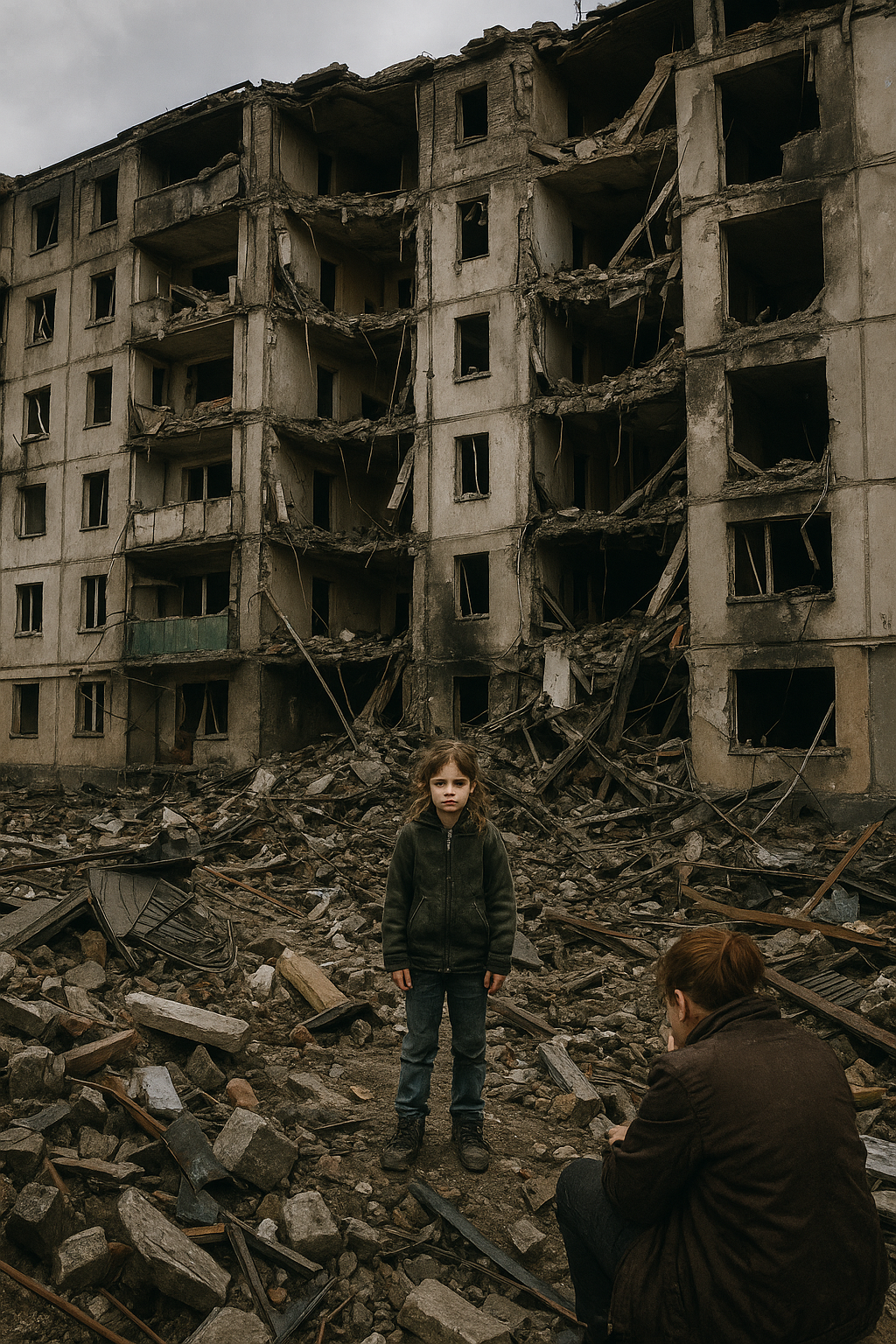UN Warns Russia’s War-Time Repression Reaches Alarming Scale, Demands Action
“This is no longer isolated abuse,” Katzarova warned. “It is an integrated strategy of authoritarian rule.”

The United Nations' top human rights expert on Russia, Mariana Katzarova, has sounded the alarm over an "unprecedented crackdown on dissent," citing a meteoric rise in politically motivated prosecutions, arbitrary detentions, and systematic torture, both within Russia and in occupied Ukrainian territories. In her second report to the UN General Assembly, Katzarova condemned Russia's sweeping abuse of national security and public safety laws, calling it a "sustained pattern of state repression" aimed at silencing opposition to the war in Ukraine and extinguishing independent civic life.
"This is no longer isolated abuse," Katzarova warned. "It is an integrated strategy of authoritarian rule."
A Legal System Weaponized for Repression
According to the report, since the full-scale invasion of Ukraine in 2022, Russia has exponentially expanded its use of treason, espionage, terrorism, and extremism charges to criminalize dissent. The figures are staggering:
-
Treason convictions soared from a few dozen before 2022 to 760 by mid-2025.
-
Espionage cases, once rare and narrowly defined, now involve 159 cases and 182 individuals, including civilians and political opponents.
-
Terrorism prosecutions reached record highs, with Russian courts issuing over five terrorism-related sentences daily in 2025.
-
The national "List of Terrorists and Extremists" has ballooned from 1,600 names in 2022 to over 18,000 by 2025—including more than 150 children and hundreds of civil society organizations.
Katzarova emphasized that many of these cases rely on fabricated evidence, lack due process, and are conducted in closed courts, violating both Russian constitutional rights and international human rights law.
"From schoolchildren to elderly activists, no one is safe from these sweeping purges of dissent," the UN expert said.
Repression Without Borders
In a particularly alarming development, Katzarova highlighted the Kremlin's efforts to extend its repression beyond Russian territory. On October 14, 2025, Russia's Federal Security Service (FSB) opened a terrorism case against 22 members of the exiled Russian Anti-war Committee, accusing them of subversive activities. This, Katzarova said, is part of a broader strategy to stifle opposition abroad and intimidate dissidents worldwide.
She also cited the October 22 petition by the Russian Prosecutor General's Office to label the late Alexey Navalny's Anti-Corruption Foundation as a "terrorist organization", solidifying the state's long-standing criminalization of Navalny's anti-corruption and pro-democracy movement.
Persecution of Minority Groups and Anti-War Voices
The report underlines how "extremism" laws, loosely defined and lacking any basis in international legal standards, have been used as catch-all provisions to prosecute a broad spectrum of groups, including:
-
Anti-war activists and independent journalists
-
LGBT+ persons, with over 100 extremism-related convictions linked to LGBT advocacy alone
-
Religious and ethnic minorities, including Indigenous Peoples
-
Legal professionals, artists, business leaders, and academics critical of the government or war
This indiscriminate repression has had a chilling effect on civic life in Russia, leading to widespread self-censorship, mass emigration, and the near-total dismantling of independent civil society.
Torture, Disappearances, and War Crimes in Ukraine
In addition to the repression inside Russia, Katzarova's report paints a harrowing picture of human rights abuses in Russian-occupied Ukrainian territories. Among the most disturbing findings:
-
Widespread torture of Ukrainian prisoners of war (POWs) and civilians, including:
-
Electric shocks
-
Rape
-
Starvation
-
Medical abuse, with some health workers directly participating in torture
-
-
Many detainees face espionage and terrorism charges in Russian courts, often leading to lengthy or life sentences.
-
Thousands of Ukrainian civilians deported to Russia remain unaccounted for, with no official information on their whereabouts or well-being.
"These acts breach the absolute prohibition of torture and amount to war crimes," Katzarova asserted. "This is a deliberate strategy of aggression targeting not just soldiers, but entire communities."
Call to Action: Accountability and International Justice
In a powerful conclusion, Katzarova said justice within Russia is currently impossible, as perpetrators enjoy total impunity and the judiciary functions as an extension of executive power.
"Justice inside Russia is unattainable. Where domestic justice is denied, the international community must act," she declared.
She urged the international community to:
-
Demand the immediate release of all individuals detained on politically motivated charges
-
Secure the release of Ukrainian civilians and children held in Russian custody
-
Hold perpetrators accountable for torture, disappearances, and deaths in detention
-
Invoke universal jurisdiction and international legal mechanisms to ensure justice
Katzarova's report is expected to influence the upcoming debates at the General Assembly and possibly lead to renewed calls for sanctions, international investigations, and further support to Russian and Ukrainian victims of repression and abuse.
ALSO READ
-
Tension Escalates as Russian Forces Intensify Attacks on Eastern Ukraine's Pokrovsk City
-
Ukrainian Forces Resist Russian Encirclement in Eastern City of Pokrovsk
-
UN Denounces US Embargo on Cuba Amid Cuba-Russia Allegations
-
Tragic Turn: Haryana Man Deceived Into Russian Army, Killed in Ukraine
-
Critical Struggle: Ukraine's Defense Against Russian Advances in Pokrovsk









